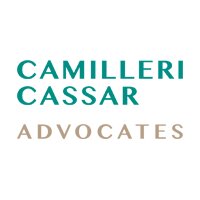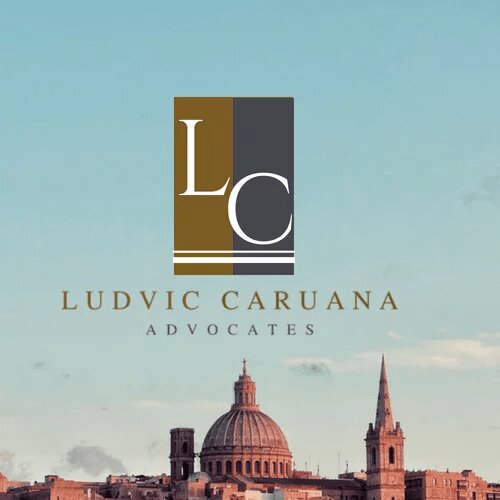Best Collaborative Law Lawyers in Malta
Share your needs with us, get contacted by law firms.
Free. Takes 2 min.
Free Guide to Hiring a Family Lawyer
Or refine your search by selecting a city:
List of the best lawyers in Malta
About Collaborative Law in Malta:
Collaborative Law in Malta is a cooperative approach to resolving legal disputes without going to court. It involves both parties and their lawyers working together to reach a mutually acceptable agreement. This process can be used in various types of cases, including family law matters, civil disputes, and business conflicts.
Why You May Need a Lawyer:
You may need a lawyer in Collaborative Law in Malta to guide you through the process, provide legal advice, and protect your rights. Lawyers are trained professionals who can help you negotiate effectively, ensure that your interests are represented, and help you reach a fair and sustainable resolution.
Local Laws Overview:
In Malta, Collaborative Law is governed by specific rules and regulations that outline the process and requirements for participation. The Civil Code and the Code of Organization and Civil Procedure are particularly relevant to Collaborative Law cases in Malta. It is important to consult with a lawyer who is knowledgeable about local laws and practices in order to navigate the Collaborative Law process effectively.
Frequently Asked Questions:
What is the difference between Collaborative Law and mediation?
Collaborative Law involves each party having their own lawyer, while mediation typically involves a neutral third party (the mediator) facilitating discussions between the parties. In Collaborative Law, the lawyers advocate for their clients' interests and provide legal advice throughout the process.
Is Collaborative Law legally binding in Malta?
Yes, in Malta, agreements reached through the Collaborative Law process are legally binding once signed by both parties. It is important to have a lawyer review any agreements before signing to ensure that your rights are protected.
How long does the Collaborative Law process usually take in Malta?
The length of the Collaborative Law process can vary depending on the complexity of the case and the willingness of the parties to cooperate. On average, Collaborative Law cases in Malta can be resolved more quickly than traditional litigation, with most cases reaching a resolution within a few months.
Can I use Collaborative Law for my divorce in Malta?
Yes, Collaborative Law can be used for divorce cases in Malta. Both parties must agree to participate in the process, and each party must have their own lawyer. Collaborative Law can be particularly beneficial in divorce cases, as it can help minimize conflict and promote a more amicable resolution.
What are the benefits of Collaborative Law in Malta?
Some of the benefits of Collaborative Law in Malta include greater control over the outcome, cost-effectiveness, confidentiality, and the opportunity to reach a resolution that is tailored to the specific needs and interests of the parties involved.
Can I switch to litigation if Collaborative Law doesn't work for me in Malta?
Yes, if Collaborative Law does not result in a resolution that is satisfactory to both parties, you have the option to pursue litigation through the traditional court system in Malta. However, once litigation has commenced, the Collaborative Law process cannot be continued.
What are the qualifications for Collaborative Law lawyers in Malta?
In order to practice Collaborative Law in Malta, lawyers must undergo specialized training in the Collaborative Law process. They must also be members of the Malta Chamber of Advocates and adhere to the ethical guidelines and standards of conduct set forth by the chamber.
Can I use Collaborative Law for business disputes in Malta?
Yes, Collaborative Law can be used to resolve a wide range of disputes in Malta, including business conflicts and commercial disputes. The Collaborative Law process can be particularly beneficial in these cases, as it can help preserve business relationships and avoid the costs and delays of traditional litigation.
Do I have to go to court if I use Collaborative Law in Malta?
In most cases, parties who participate in the Collaborative Law process in Malta are able to reach a resolution without having to go to court. However, if the parties are unable to reach an agreement through Collaborative Law, they may have to resort to litigation in order to resolve their dispute.
How do I find a Collaborative Law lawyer in Malta?
You can find a Collaborative Law lawyer in Malta by contacting the Malta Chamber of Advocates or by searching online for lawyers who specialize in Collaborative Law. It is important to research potential lawyers, meet with them for an initial consultation, and choose a lawyer who you feel comfortable working with.
Additional Resources:
For more information about Collaborative Law in Malta, you can visit the Malta Chamber of Advocates website or contact them directly for assistance. The International Academy of Collaborative Professionals (IACP) also provides resources and training for Collaborative Law practitioners worldwide.
Next Steps:
If you are considering using Collaborative Law in Malta or if you need legal assistance in a Collaborative Law case, it is important to consult with a qualified lawyer who is experienced in the Collaborative Law process. Your lawyer can guide you through the process, provide legal advice, and help you reach a fair and equitable resolution to your dispute.
Lawzana helps you find the best lawyers and law firms in Malta through a curated and pre-screened list of qualified legal professionals. Our platform offers rankings and detailed profiles of attorneys and law firms, allowing you to compare based on practice areas, including Collaborative Law, experience, and client feedback.
Each profile includes a description of the firm's areas of practice, client reviews, team members and partners, year of establishment, spoken languages, office locations, contact information, social media presence, and any published articles or resources. Most firms on our platform speak English and are experienced in both local and international legal matters.
Get a quote from top-rated law firms in Malta — quickly, securely, and without unnecessary hassle.
Disclaimer:
The information provided on this page is for general informational purposes only and does not constitute legal advice. While we strive to ensure the accuracy and relevance of the content, legal information may change over time, and interpretations of the law can vary. You should always consult with a qualified legal professional for advice specific to your situation.
We disclaim all liability for actions taken or not taken based on the content of this page. If you believe any information is incorrect or outdated, please contact us, and we will review and update it where appropriate.
Browse collaborative law law firms by city in Malta
Refine your search by selecting a city.













